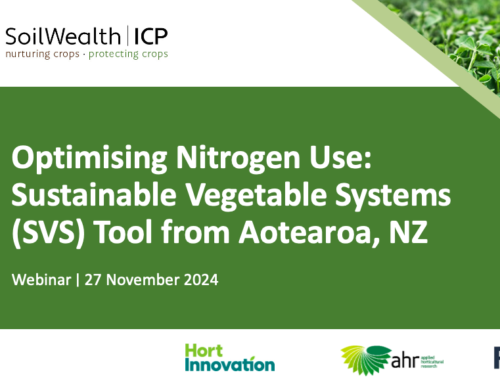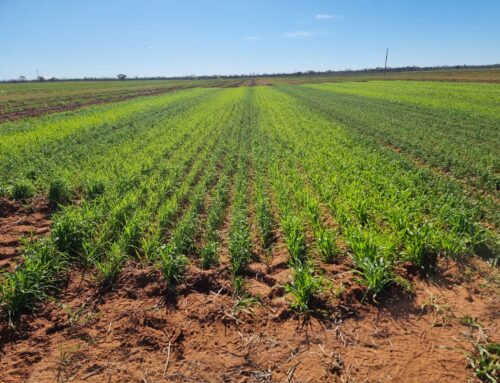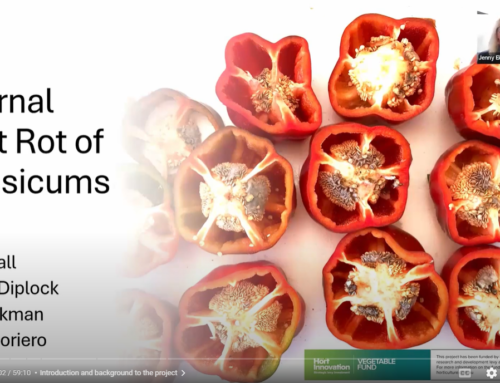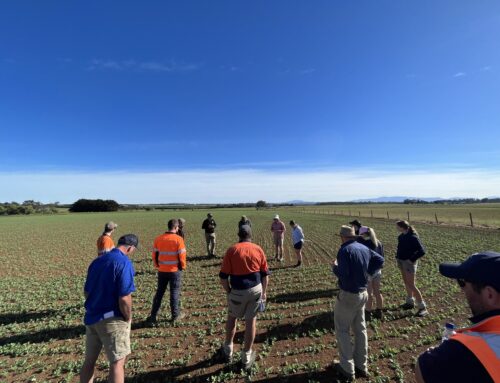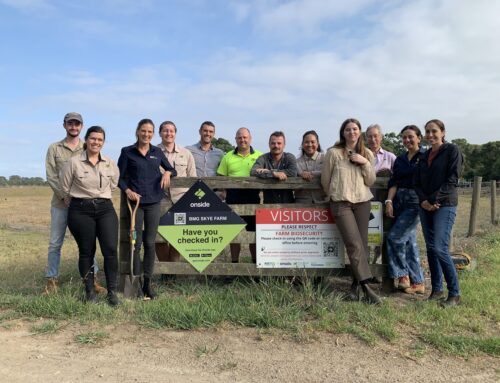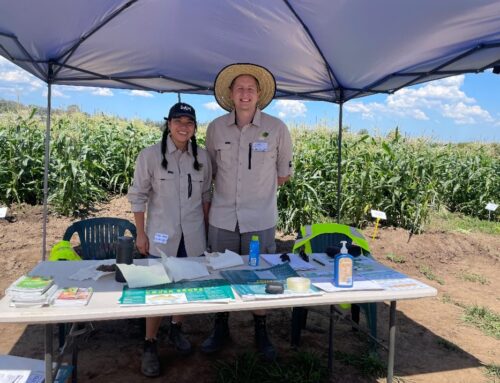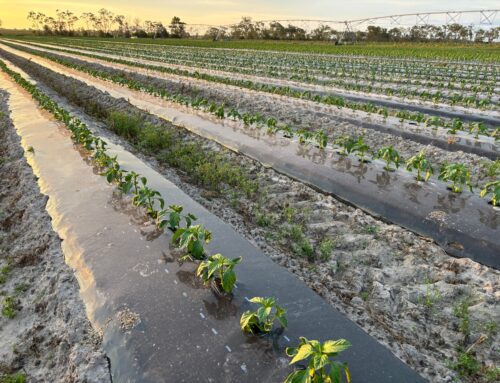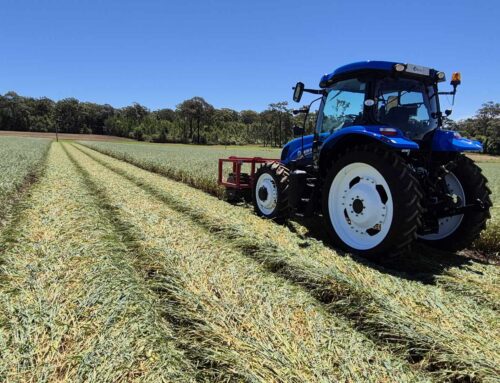Growers and agronomists recently met at two special events in Bathurst and Cowra, aimed at strengthening the resilience and biosecurity measures in vegetable growing.
Bathurst: The use of cover crops and reduced tillage to build resilience
Hosted by grower Val Micallef, who grows sweet corn, brassicas, and other crops, the event was a collaboration between by AUSVEG (as part of the ‘NSW Vegetables Building Biosecurity Capacity and Resilience Project’), VegNET, the Soil Wealth ICP project and the national vegetable Fall armyworm project.
Presentations, which included topics of soil health from the Soil Wealth ICP team (Steph Tabone and Dr Kelvin Montagu), clubroot (Leigh James, AgriWest), fall armyworm (John Duff and Praise Tadle, QDAF), were followed by a field walk, providing attendees with both theoretical insights and practical applications of cover crops, integrated pest management (IPM), and pest scouting (Andy Ryland, IPMC Consulting).
A key focus of the event was the crucial role of soil health in mitigating the impact of extreme weather events.
Reduced tillage practices and the implementation of cover crops emerged as key strategies in building soil health, with attendees receiving practical guidance on selecting suitable cover crop species and tailored management approaches to suit individual farming contexts.
Val Micallef’s journey served as an inspiring case study illustrating the power of prioritising soil health. The Soil Wealth ICP team discussed Val’s approach to getting the drainage on paddocks right, then integrating cover crops and minimising tillage to build soil health. Also highlighted was Val’s innovative approach to cover crop termination, using strip tillage and light disc tillage, and how this not only preserved soil structure but also nurtured soil biology.
Kelvin explored the use sweet corn stubble as a natural mulch as another means of protecting soil. Observations of thriving earthworm populations beneath the mulch highlighted the efficacy of such practices in nurturing soil biodiversity, with a word of caution around the presence of slugs with retention of crop residues.
Feedback on the event was very positive and highlighted the importance of adopting integrated approaches to build resilience, and the value in bringing growers and experts together to tackle emerging challenges, such as the increased frequency of extreme weather events.
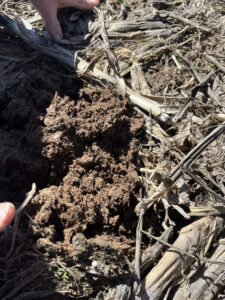
Soil under sweet corn stubble and mulch.
Cowra: Navigating floods and pests – insights from Simplot’s farm
Industry experts and growers met at Simplot’s farm in Cowra, where they grow corn, beetroot, broccoli, cauliflower and other vegetables.
Hosted by Evan Brown and his team, the event focused on the impacts of extreme weather and invasive pests, and how growers can best prepare and recover.
Evan’s overview of Simplot’s experiences with flooding offered a valuable reminder of the extensive damage that can result from 5-6 meters of flood waters, including soil compaction, erosion, and destruction to large surrounding trees.
Kelvin and Steph presented on the importance of protecting the soil using cover crops, where the name says it all: Once terminated cover crops provide protection against erosion and loss of soil after rains as a ‘brown’ fallow.
A significant part of the discussion focussed on tackling fall armyworm (FAW) infestation, particularly in sweet corn crops, with demonstrations and discussion of integrated management strategies with John Duff, Praise Tadle (QDAF) and Andy Ryland (IPMC Consulting).
Growers shared their experiences with IPM and participants explored FAW identification, highlighting key differences from other pests like heliothis.

John Duff and participants inspecting samples of sweet corn, maize and sorghum with damage from Fall armyworm.
More information is available on this website. Type ‘fall armyworm’, ‘cover crops’, or ‘club root’ here to find the available resources.
Thank you to all of the hosts, attendees, industry partners, and presenters who supported these events.
This is an event of the Building Biosecurity Capacity and Resilience within the NSW Vegetable Industry Project, funded by the Australian and NSW Government’s Storm and Flood Industry Recovery Program with support from AUSVEG, and the Clean Coastal Catchments project of North Coast Local Land Services, part of the NSW Government funded Marine Estate Strategy.
Image above: Dr Kelvin Montagu with grower Val Micallef discussion soil health under a young oat and field pea cover crop.


